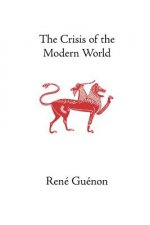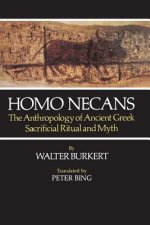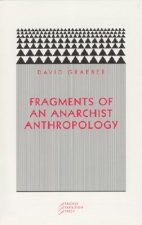
Kód: 02514385
Intangible Cultural Heritage in International Law
Autor Lucas Lixinski
This book offers a comprehensive analysis of the legal issues around intangible cultural heritage (also known as traditional cultural expressions or folklore). It explores both institutional and substantive responses the law offer ... celý popis
- Jazyk:
 Angličtina
Angličtina - Vazba: Pevná
- Počet stran: 296
Nakladatelství: Oxford University Press, 2013
- Více informací o knize

Mohlo by se vám také líbit
-

8 Classic Albums
0 Kč
Dárkový poukaz: Radost zaručena
- Darujte poukaz v libovolné hodnotě a my se postaráme o zbytek.
- Poukaz se vztahuje na celou naši nabídku.
- Elektronický poukaz vytisknete z e-mailu a můžete ihned darovat.
- Platnost poukazu je 12 měsíců od data vystavení.
Více informací o knize Intangible Cultural Heritage in International Law
Nákupem získáte 371 bodů
 Anotace knihy
Anotace knihy
This book offers a comprehensive analysis of the legal issues around intangible cultural heritage (also known as traditional cultural expressions or folklore). It explores both institutional and substantive responses the law offers to the safeguarding of intangible heritage, relying heavily on critiques internal and external to the law. These external critiques primarily come from the disciplines of anthropology and heritage studies. Intangible cultural heritage is safeguarded on three different levels: international, regional, and national. At the international level, the foremost instrument is the specific UNESCO Convention for the Safeguarding of the Intangible Cultural Heritage (2003). At the regional level, initiatives are undertaken both in schemes of political and economic integration, a common thread being that intangible cultural heritage helps promote a common identity for the region, becoming thus a desirable aspect of the integration process. Domestically, responses range from strong constitutional forms of protection to rather weak policy initiatives aimed primarily at attracting foreign aid. Intangible heritage can also be safeguarded via substantive law, and, in this respect, the book looks at the potential and pitfalls of human rights law, intellectual property tools, and contractual approaches. It investigates how the law works and ought to work towards protecting communities, defined as those from where intangible cultural heritage stems, and to whom benefits of its exploitation must return. The book takes the critiques from anthropological and heritage studies into account in order to posit a re-shaped law, offering tools that can be valuable to both scholars and practitioners when understanding how to safeguard intangible heritage.
 Parametry knihy
Parametry knihy
Zařazení knihy Knihy v angličtině Society & social sciences Sociology & anthropology Anthropology
3705 Kč
- Plný název: Intangible Cultural Heritage in International Law
- Autor: Lucas Lixinski
- Jazyk:
 Angličtina
Angličtina - Vazba: Pevná
- Počet stran: 296
- EAN: 9780199679508
- ISBN: 0199679509
- ID: 02514385
- Nakladatelství: Oxford University Press
- Hmotnost: 594 g
- Rozměry: 240 × 161 × 22 mm
- Datum vydání: 06. June 2013
Oblíbené z jiného soudku
-

Revolt Against the Modern World
611 Kč -

Crowd
266 Kč -

Secret of Our Success
467 Kč -

Exercised
337 Kč -

Combatting Cult Mind Control
509 Kč -

Utopia Of Rules
415 Kč -

Protestant Ethic and Other Writings
400 Kč -

Watching the English
298 Kč -

Trickster Makes This World
283 Kč -

Crisis of the Modern World
426 Kč -

Kill All Normies - Online culture wars from 4chan and Tumblr to Trump and the alt-right
315 Kč -

Evolution of the Human Head
1465 Kč -

Cambridge Encyclopedia of Human Evolution
2501 Kč -

Sixty Million Frenchmen Can't Be Wrong
451 Kč -

Patterning Instinct
487 Kč -

Peoplewatching
433 Kč -

How Natives Think
555 Kč -

Bones of Contention
1160 Kč -

Exploration and Discovery - Treasures of the Yale Peabody Museum of Natural History
617 Kč -

War, Peace, and Human Nature
1922 Kč -

Homo Necans
1159 Kč -

Chaos and Governance in the Modern World System
792 Kč -

School and Society
207 Kč -

Consider The Lobster
269 Kč -

Limits to Medicine
367 Kč -

Totem and Taboo
167 Kč -

Face and Mask
1462 Kč -

Fragments of an Anarchist Anthropology
330 Kč -

Catching Fire
347 Kč -

Designs for the Pluriverse
783 Kč -

Society Against the State
548 Kč -

Ayahuasca Visions
814 Kč -

Nordic Theory of Everything
298 Kč -

Ritual
282 Kč -

Five Roles of a Master Herder
419 Kč -

Human Story
334 Kč -

On Saudi Arabia
409 Kč -

Human Diversity
951 Kč -

Small Places, Large Issues
569 Kč -

Why Is Sex Fun?
258 Kč -

Great Paleolithic War
1503 Kč -

Botany of Desire
383 Kč -

Stone Age Economics
516 Kč -

Possibilities
483 Kč -

Oxford Handbook of Language Evolution
1320 Kč -

On Kings
756 Kč -

Nature, Ritual, and Society in Japan's Ryukyu Islands
1784 Kč -

Introducing Anthropology
266 Kč -

Interaction Ritual
1898 Kč
Osobní odběr Praha, Brno a 12903 dalších
Copyright ©2008-24 nejlevnejsi-knihy.cz Všechna práva vyhrazenaSoukromíCookies



 Vrácení do měsíce
Vrácení do měsíce 571 999 099 (8-15.30h)
571 999 099 (8-15.30h)